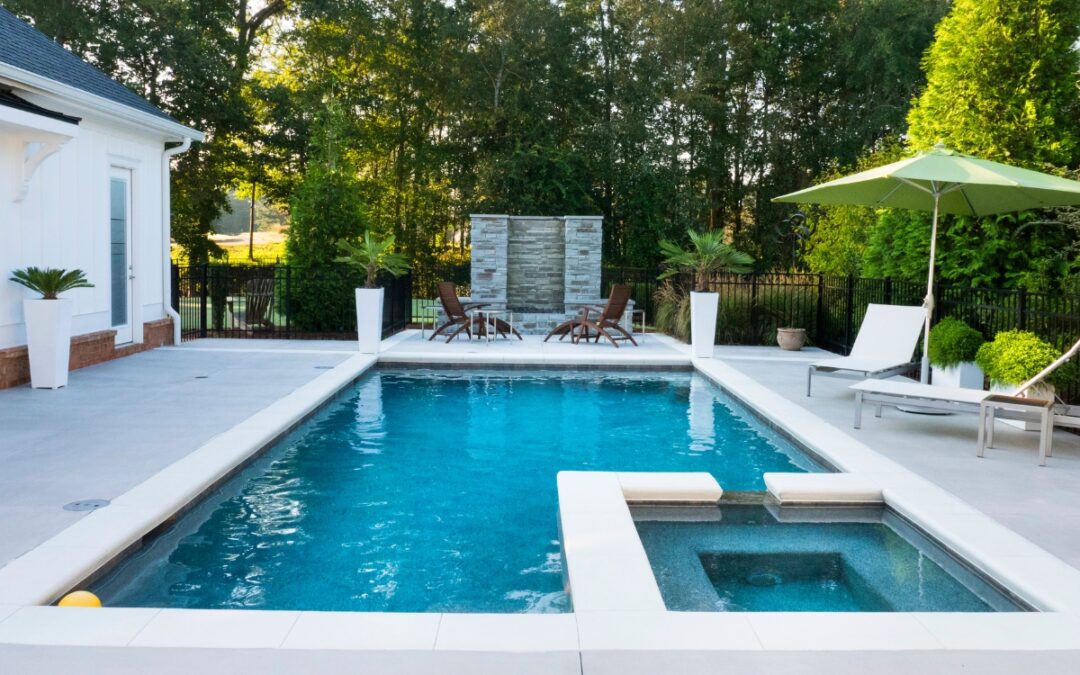Sustainability is becoming increasingly crucial, and the concept of energy efficient pools emerges as a beacon of innovation and environmental consciousness. In this article, we’ll explore the latest eco-friendly solutions that can transform your pool into a sustainable oasis. Whether you own a residential pool or manage a commercial one, adopting energy-efficient practices not only benefits the environment but also brings numerous advantages to your pocket and overall swimming experience.
The Future of Pool Technology: Exploring Energy Efficient Pools
The Evolution of Pool Sustainability: From Environmental Impact to Eco-Friendly Solutions
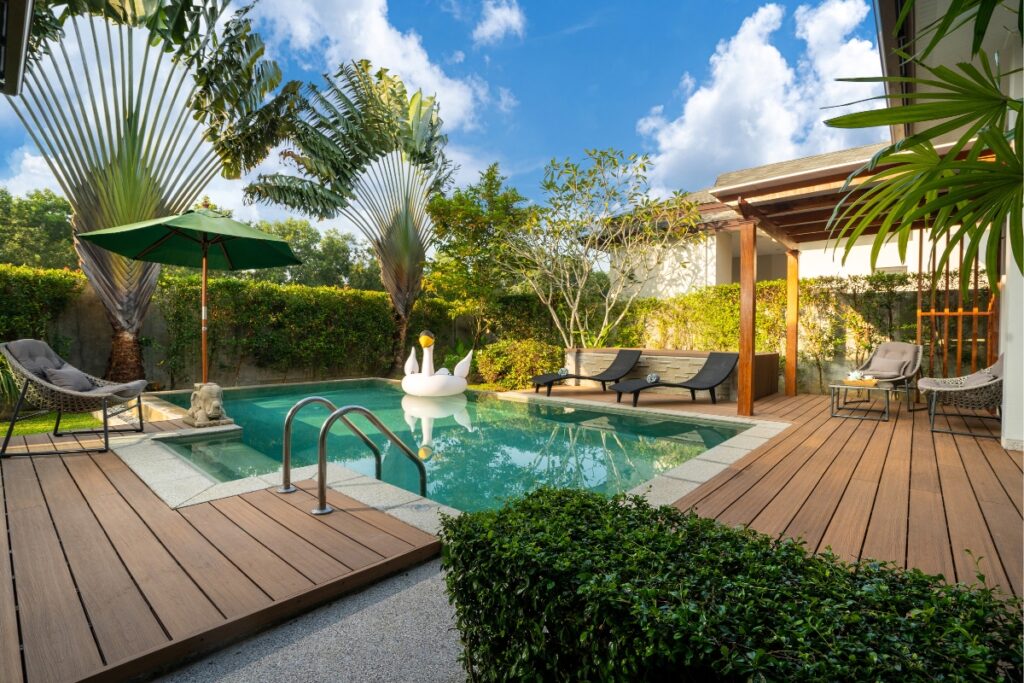
Energy-efficient pools have come a long way in terms of sustainability. In the past, traditional pools were notorious for their high energy consumption and negative environmental impact. However, with the growing awareness of climate change and the need for eco-friendly solutions, pool designers and manufacturers have stepped up their game to create more sustainable options.
Today, energy-efficient pool design focuses on reducing energy consumption through various innovative techniques. For instance, pool covers are now designed to minimize heat loss and evaporation, thereby reducing the need for excessive heating. Additionally, advancements in insulation materials and techniques ensure that pools retain heat more effectively, further contributing to energy efficiency.
Furthermore, modern pool equipment such as variable-speed pumps and LED lighting systems are specifically designed to consume less energy while still providing optimal performance. These technological advancements not only reduce energy consumption but also contribute to cost savings for pool owners in the long run.
Harnessing Solar Power: The Key to Sustainable Pool Heating
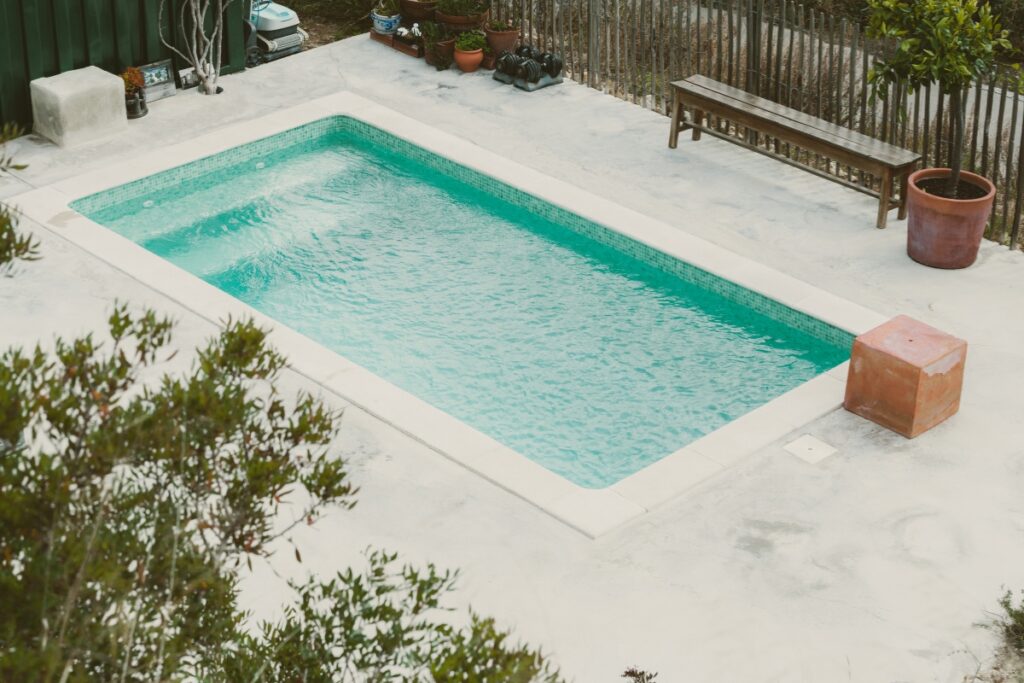
Solar power is a game-changer when it comes to sustainable pool heating. By harnessing the sun’s energy, pool owners can enjoy warm water without relying on electricity or gas-powered heaters. Solar heating systems consist of solar collectors that absorb sunlight and transfer the heat to the pool water.
There are two main types of solar heating systems: glazed and unglazed collectors. Glazed collectors are made of glass and are more efficient in capturing heat, making them suitable for colder climates. On the other hand, unglazed collectors are made of durable plastic or rubber materials and are ideal for warmer regions.
Installing a solar heating system not only reduces energy consumption but also provides a cost-effective solution in the long run. While the initial investment may be higher compared to traditional heating methods, the savings on energy bills quickly offset this cost, resulting in significant financial benefits over time.
Water Conservation Strategies for Eco-Friendly Pool Maintenance
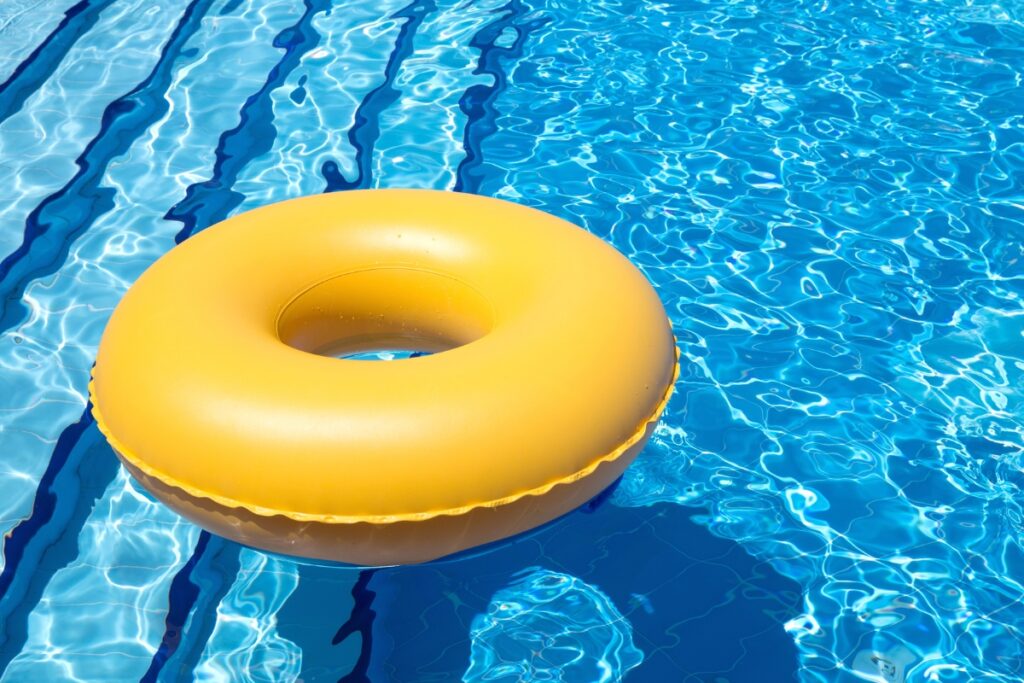
When it comes to maintaining pools in an eco-friendly manner, implementing water conservation strategies is crucial. Energy Efficient Pools not only help in reducing environmental impact but also contribute to sustainable practices. Let’s explore some effective water conservation strategies for maintaining eco-friendly pools:
- Regular Monitoring: Start by regularly monitoring the pool water levels to avoid unnecessary wastage. Keep an eye on any leaks or evaporation issues that might lead to water loss.
- Cover the Pool: Invest in a pool cover to prevent water evaporation. This simple step not only helps in conserving water but also reduces the need for frequent refilling.
- Opt for Energy-Efficient Filters: Consider using energy-efficient pool filters that not only help in maintaining water quality but also consume less energy, contributing to overall sustainability.
- Collect Rainwater: Set up a rainwater collection system to gather water for pool refills and topping up. This way, you can utilize natural resources efficiently while reducing water consumption.
- Implement Proper Chemical Balancing: Ensure that the pool’s chemical levels are well-balanced to prevent overuse of water due to frequent draining and refilling.
- Regular Maintenance Checks: Conduct regular maintenance checks to detect and fix any issues promptly. Addressing leaks or equipment malfunctions can prevent unnecessary water wastage.
- Opt for Drought-Resistant Landscaping: Surrounding your pool with drought-resistant plants can help in reducing water usage for landscaping purposes, contributing to overall water conservation efforts.
- Educate Pool Users: Educate pool users about the importance of water conservation and encourage responsible water usage practices, such as avoiding splashing and unnecessary water wastage.
By implementing these water conservation strategies, you can effectively maintain an eco-friendly pool while promoting sustainability and energy efficiency. Energy Efficient Pools are not just about reducing energy consumption but also about adopting holistic practices that benefit the environment in the long run.
Smart Technology Integration: Automation for Energy Efficiency
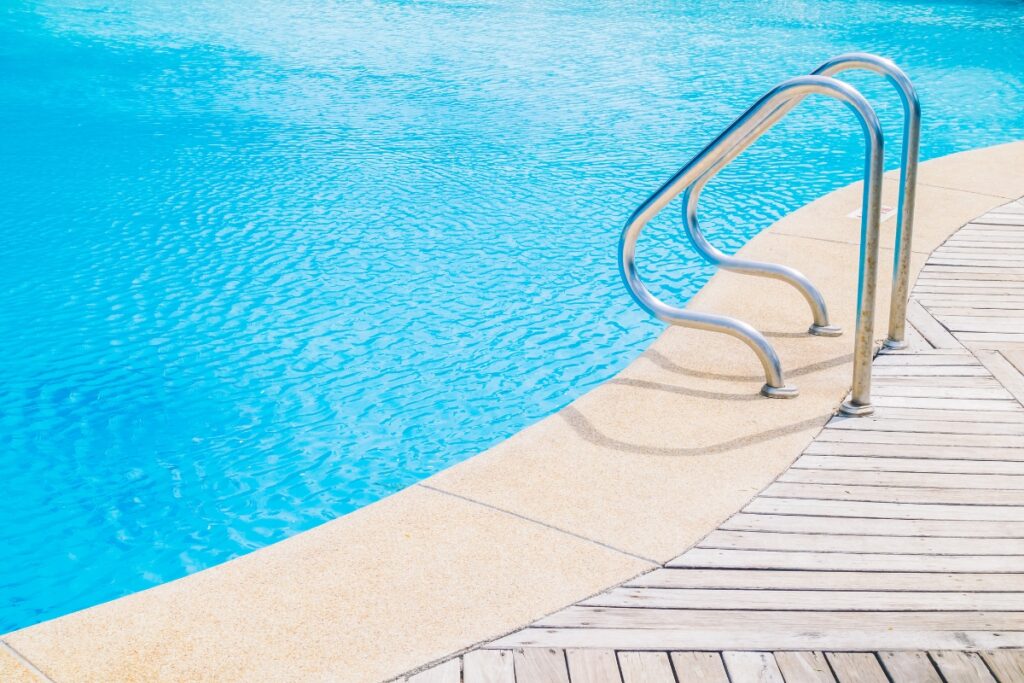
Energy efficient pools are not just a trend but a necessity in today’s world where sustainability is a key focus. By integrating smart technology and automation, pool owners can significantly enhance energy efficiency while reducing their carbon footprint.
One of the key aspects of energy-efficient pools is the use of smart pool technology for automation. Automated pool covers, for example, help retain heat and reduce evaporation, thus minimizing the energy required to heat the pool water. This not only saves on energy costs but also contributes to environmental conservation by decreasing the overall energy consumption.
Moreover, installing energy-efficient pool pumps and filtration systems can further enhance the sustainability of the pool. These pumps are designed to consume less energy while still effectively circulating and filtering the water. By incorporating such systems, pool owners can ensure a clean and safe swimming environment without compromising on energy efficiency.
Another innovative solution for energy-efficient pools is the use of solar-powered heating systems. By harnessing the power of the sun to heat the pool water, owners can reduce their dependence on traditional energy sources. This not only cuts down on energy costs in the long run but also reduces the carbon emissions associated with heating the pool.
In addition to technology-driven solutions, simple eco-friendly practices can also contribute to energy efficiency in pools. Regular maintenance, proper insulation, and optimizing the pool’s design can all play a significant role in reducing energy consumption and promoting sustainability.
The Role of Energy-Efficient Pumps and Filtration Systems in Pool Sustainability
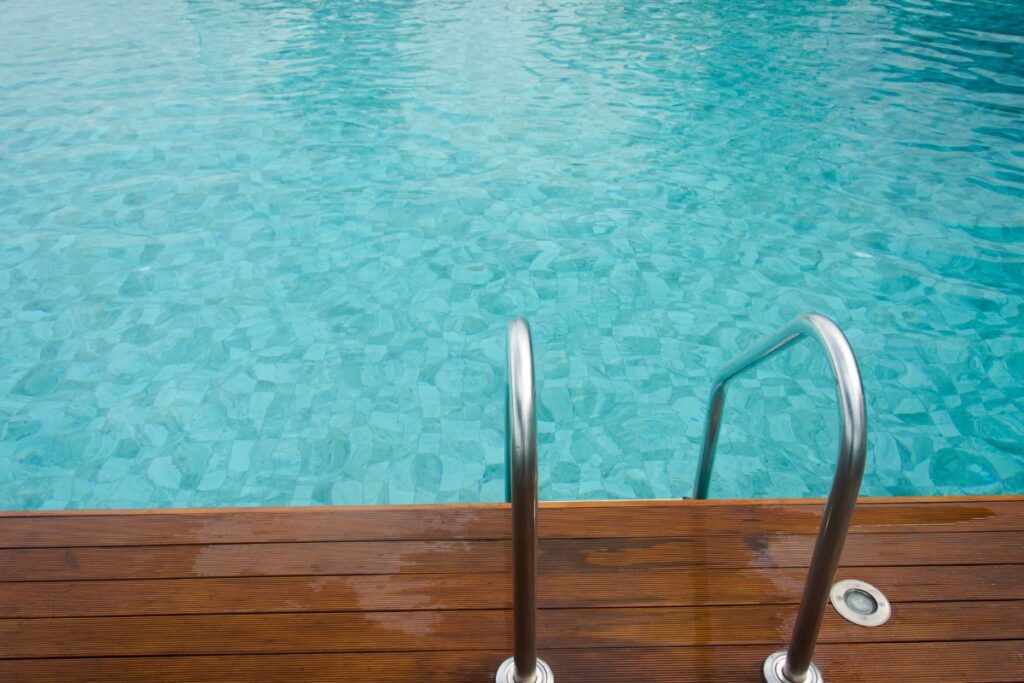
Pumps and filtration systems play a crucial role in maintaining water quality while minimizing energy consumption. Traditional single-speed pumps are known for their high energy usage, but advancements in technology have led to the development of variable-speed pumps.
Variable-speed pumps allow users to adjust the pump’s speed according to their needs, resulting in significant energy savings. These pumps operate at lower speeds during regular filtration cycles and ramp up when additional power is required for tasks such as vacuuming or backwashing.
In addition to variable-speed pumps, energy-efficient filtration systems further contribute to sustainability by reducing chemical usage and water waste. Advanced filters such as cartridge filters or diatomaceous earth (DE) filters provide superior filtration performance while requiring less maintenance compared to traditional sand filters.
Eco-Friendly Pool Chemicals: Balancing Cleanliness and Environmental Responsibility
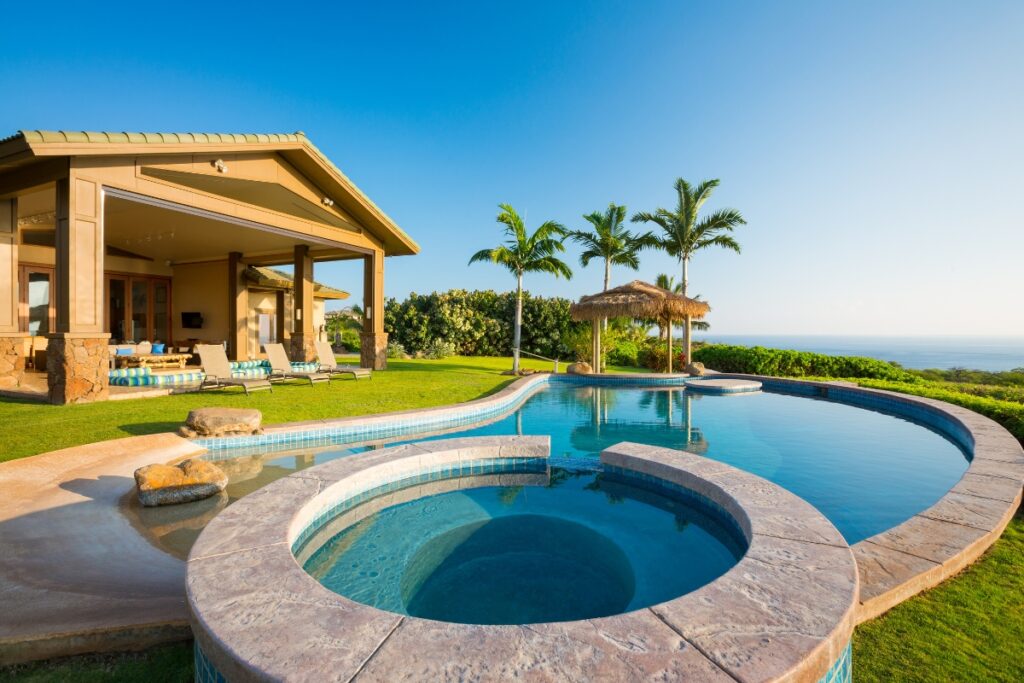
Maintaining water cleanliness is essential for a safe and enjoyable swimming experience. However, traditional pool chemicals can have negative environmental impacts. Fortunately, there are now eco-friendly alternatives available that strike a balance between cleanliness and environmental responsibility.
One such alternative is the use of saltwater chlorination systems. These systems generate chlorine from salt, eliminating the need for storing and handling hazardous chemicals. Saltwater pools provide a more natural swimming experience while minimizing the environmental impact.
Furthermore, there are eco-friendly pool chemicals available on the market that are formulated using environmentally friendly ingredients. These chemicals effectively sanitize the water without introducing harmful substances into the environment.
Embracing a Brighter Future: How Energy Efficient Pools Contribute to a Greener Planet
Energy-efficient pools offer more than just personal enjoyment; they contribute to a greener planet by reducing carbon emissions and conserving resources. By adopting sustainable pool design, utilizing renewable energy sources, implementing water conservation strategies, and embracing smart technology integration, we can create a brighter future for both ourselves and the environment.
Ready to make a splash with an energy-efficient pool that’s both sustainable and stunning? Dive into the future of swimming pool technology with Clear Water Pools Atlanta and our selection of pool services. Contact us today at 770-406-8638 or request a pool estimate on our website and start your journey towards a greener, more eco-friendly backyard oasis.


